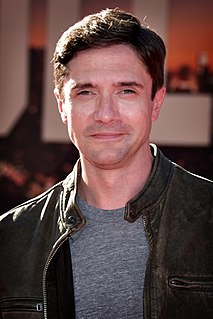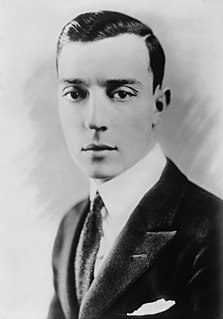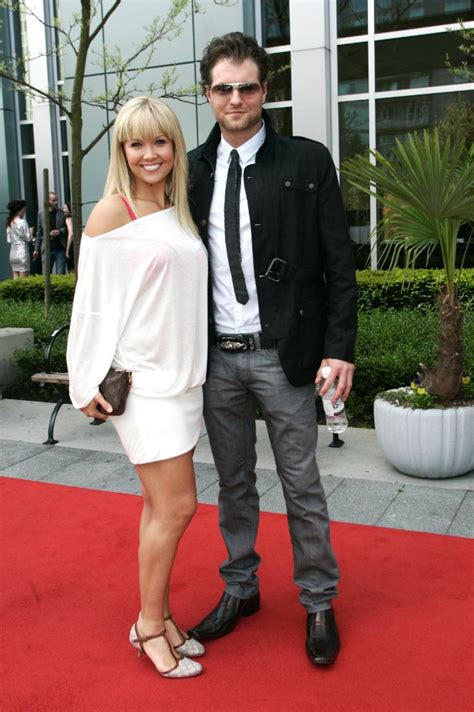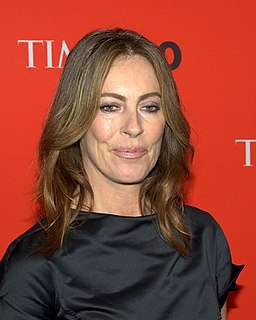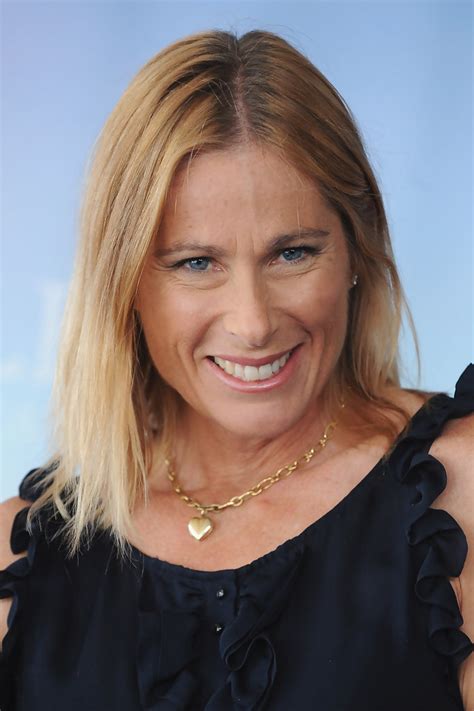A Quote by Topher Grace
I do have a concern about projecting. I've never projected or had any reason to project before. In fact, the camera has only gotten closer to me going from TV to film.
Related Quotes
I think the point of America, our planet, the reason we're all here, one of the best things that we can do is be concerned about something even when it doesn't concern us. That's the whole point. The fact that I've never had to use a Planned Parenthood, the fact that I've never been in need of medical services I couldn't afford or didn't have access to, doesn't mean I shouldn't be concerned about the fact that other women don't have that access.
Being an actor in TV or movies is different. A film or TV actor, if put in theatre, won't know certain dimensions, while a theatre actor won't know certain things when he comes before the camera. So I think a film actor can learn emoting from this theatre counterpart, while the theatre actor can learn about camera techniques from the film actor.
The first thing I did in the studio was to want to tear that camera to pieces. I had to know how that film got into the cutting room, what you did to it in there, how you projected it, how you finally got the picture together, how you made things match. The technical part of pictures is what interested me. Material was the last thing in the world I thought about. You only had to turn me loose on the set and I`d have material in two minutes, because I`d been doing it all my life.
I only want to make movies that I believe in, that I care about and that mean something to me. At the end of the day, that's the only reason I'm doing this. Hopefully I can continue to grow and challenge myself to try to do things I've never done before, and make different kinds of movies that still maintain what makes the film my film.
In the case of my second film The Fish Child (El Niño Pez), I had written the novel about 5 years before I made into a film. In the case of The German Doctor I had published the novel a year before I started writing the script, I even had another project to shoot. But I had this idea of the powerful cinematic language from the novel that I couldn't let go of.
I've never planned ahead.I just sort of go through life checking the menu of three meals that day. I never worry about tomorrow. It's only since I've gotten older that I've begun to wonder about time running out. Is it sufficient unto itself that I don't plan? Because maybe next Thursday won't come one day. And then, I'm concerned about that. But that's not uniquely the writer's concern, that's the concern of every middle-aged man who looks in the mirror.
I love making films, and as long as I love the subject, I just have a crazy amount of passion and energy for the project. The project that influenced me the most is this cooking show I do online. I film it all myself, and I think making so many of those gave me the confidence that all I need is a camera, and I could go and do an interview. The freedom to be a filmmaker - you just need a camera.
